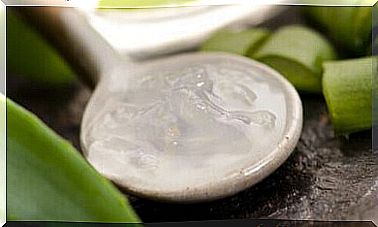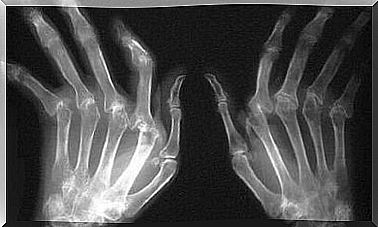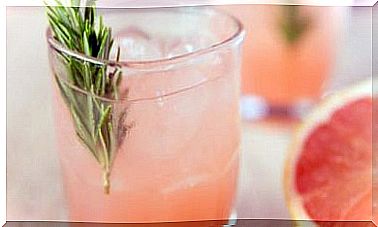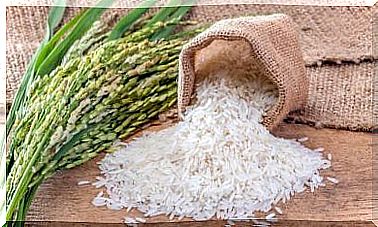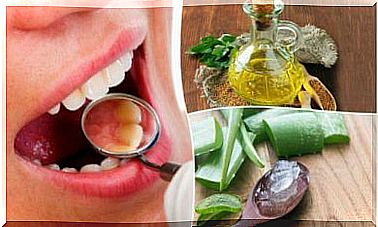Clean The Blood Vessels With Pomegranate
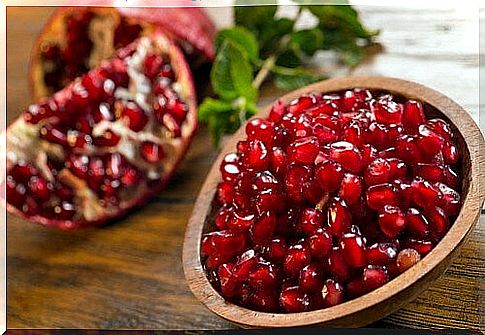
The pomegranate is a traditionally well-known fruit, which is exceptionally high in powerful antioxidants and offers many medicinal benefits. What is special about this fruit is that it can cleanse the arteries.
Several studies have shown that the pomegranate is one of the most nutritious fruits. This fruit contains large amounts of vitamin C and vitamin B (pantothenic acid), natural phenols, potassium, vitamin A, vitamin E and folic acid.
In addition, according to a study at the University of California, the fruit is rich in antioxidants, which fight free radicals and slow down cell aging.
The powerful properties of these nutrients make pomegranate extremely helpful for multiple ailments. Thus, this fruit can reduce the risk of heart attacks, improve blood circulation to the heart and keep the veins free from fat deposits.
Often the seeds, flowers and peel of the pomegranate are used and often it is also recommended to drink the juice.
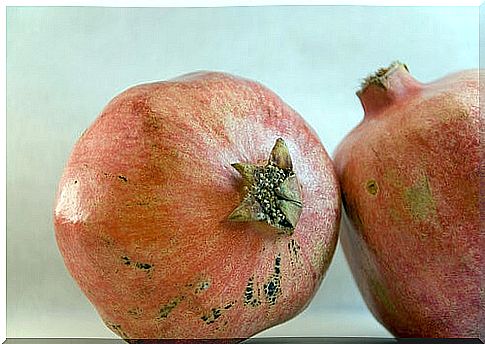
Pomegranate and the Blood Vessels
A recent study found that pomegranate may help prevent atherosclerosis. Atherosclerosis is a disease of the blood vessels in which there is a buildup of fat in the inner lining of the arteries and is a leading cause of heart attacks and strokes.
Atherosclerosis can be caused by hypertension, oxidative stress and high cholesterol, and let this fruit counteract just those three things.
Drinking pomegranate juice has been shown to reduce atherosclerosis in 25% of patients enrolled in the study.
What other properties does this fruit possess?
- Can slow the development of cataracts
- According to research by the University of Jordan, it can help with diabetes
- Works anti-inflammatory
- According to several studies, it strengthens the bones and muscles and cartilage
- Can relieve stress
- According to a 2013 study published in the journal Phytotherapy Research , it may help stabilize unhealthy cholesterol levels
- Can help prevent fat accumulation in the stomach
- Can help fight intestinal parasites
- Reduces plaque and has an antibacterial effect. In India, they use the white, bitter part of the pomegranate as an ingredient in natural toothpastes.
- May help protect skin from UV rays (when applied topically)
How can you take pomegranate?
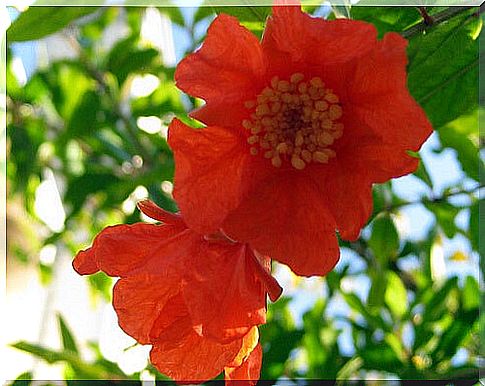
You can eat pomegranate, not like a regular apple, but by removing the seeds from the skin. Many people find peeling pomegranates difficult, but if you cut the pomegranate in half and tap the skin with a spoon, most of the seeds will fall out.
Or you can cut the fruit into quarters and bend the wedges outward.
You can also drink this fruit by making juice from the seeds. This juice can be quite acidic, but try to avoid adding sugar. Then use stevia or honey.
For example, pomegranate juice is delicious to mix with apple juice, orange juice or carrot juice. You can also buy ready-made pomegranate juice from health food stores and many supermarkets.
The extract from the rind of pomegranate can be taken as a supplement. The peel of pomegranate is very high in antioxidants and is even better for cholesterol than the pulp.
Oil can also be made from the pomegranate seeds. You can use this oil externally for relief from eczema, psoriasis and dry and irritated skin or from insect bites and sunburn. You can also use the oil, which is rich in antioxidants, to prevent skin aging and make wrinkles less visible.
An infusion of the flowers of this fruit can help with diarrhea, while an infusion of the leaves can help prevent anemia.
Consult your doctor before including this fruit in your diet if you are taking medication. The fruit could facilitate the breakdown of certain medicines.


